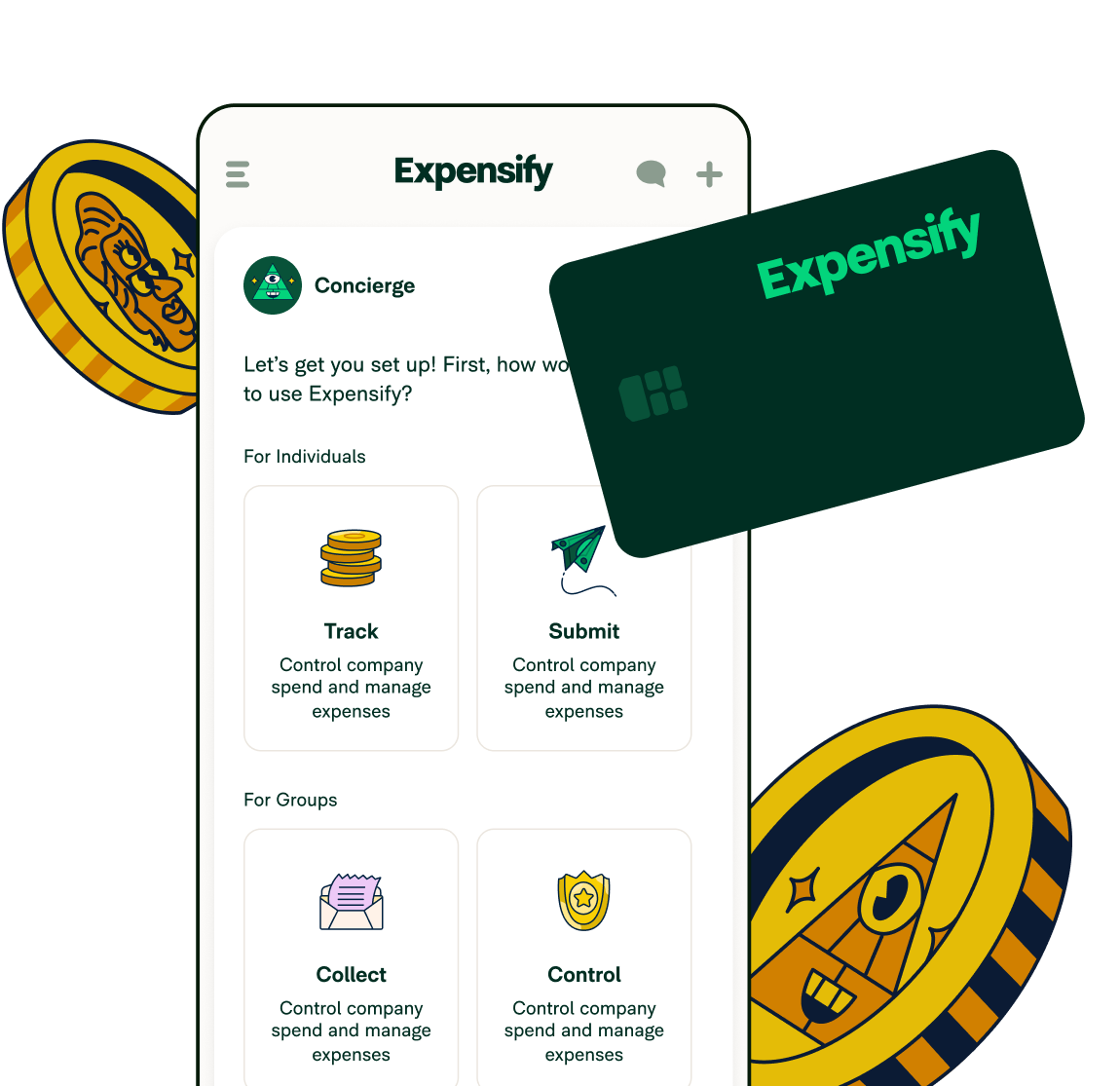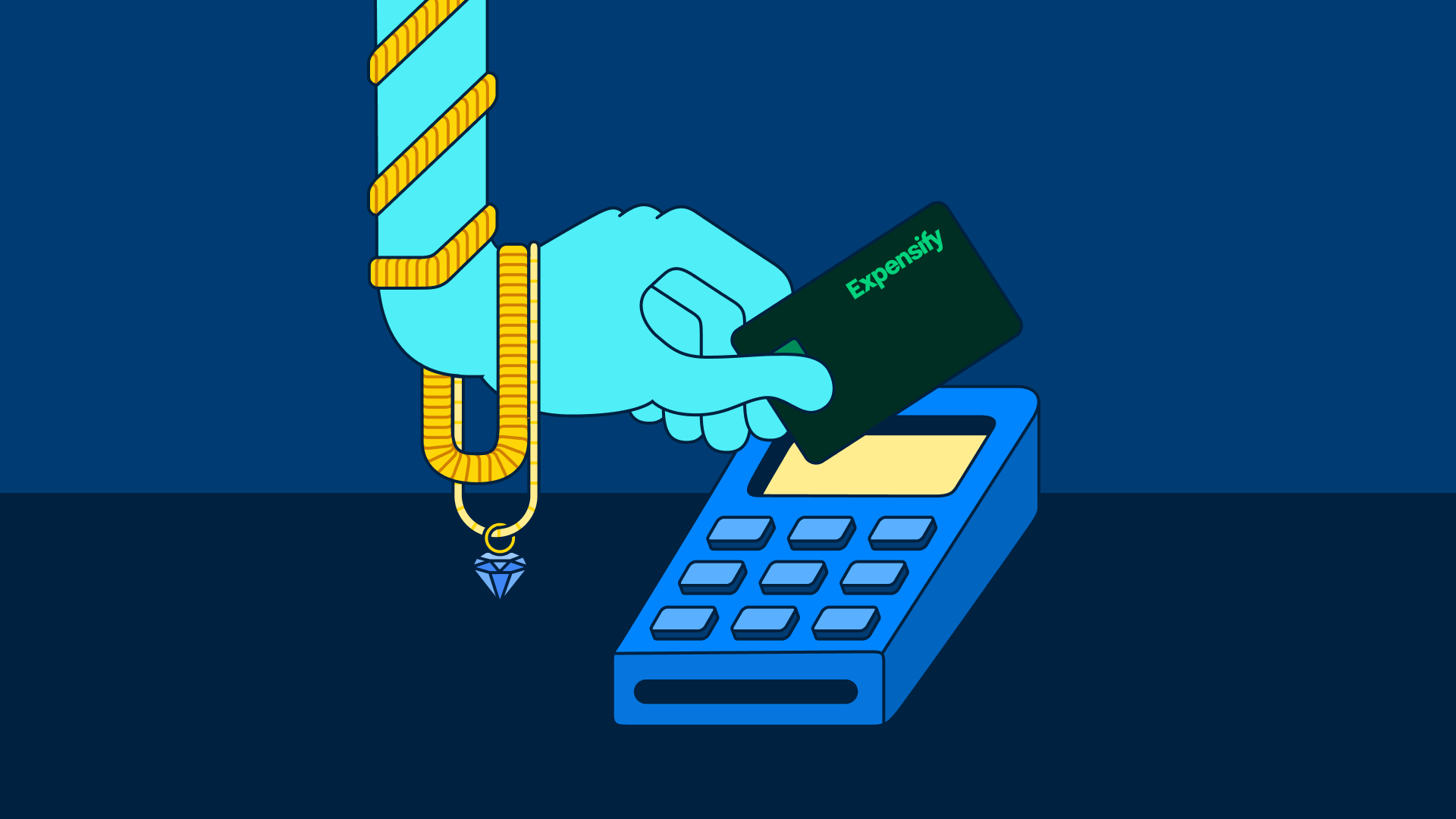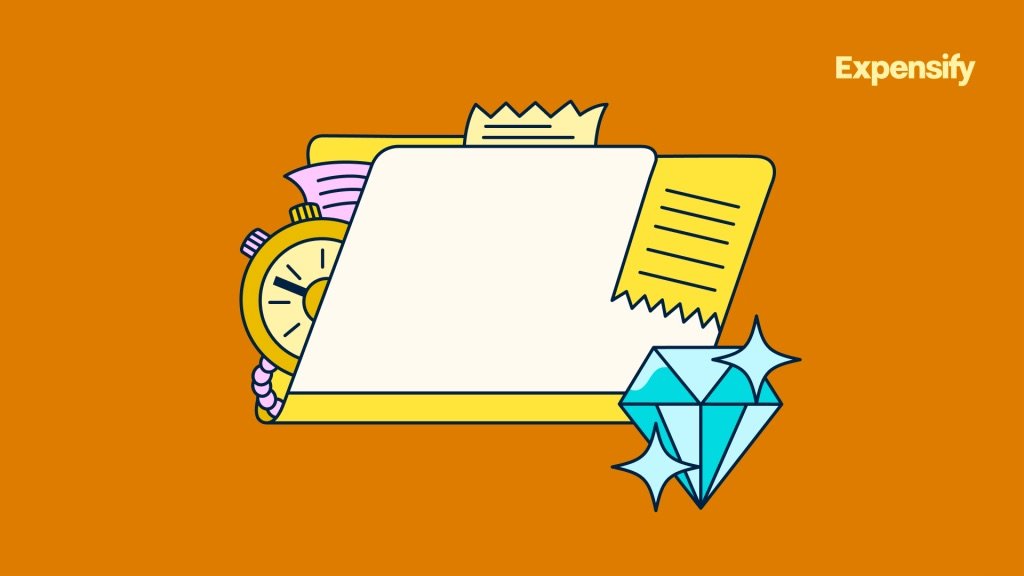5 credit card hacks to maximize your business rewards (+ 5 hacks to avoid)

Ah, credit card hacks. When they work, they're amazing, but when they don't, they can feel like such a waste of time.
At their best, credit card hacks are savvy strategies for getting the most out of your credit cards, from racking up rewards to maximizing cash flow. These tricks can be a game-changer for your business finances, but beware, not all hacks are created equal.
In this article, we'll explore the best five credit card hacks that work to maximize your business rewards. Plus, we'll warn you about five not-so-great strategies to steer clear of.
5 effective credit card hacks for small business owners
Smart credit card strategies can transform your business spending from a necessary expense into a source of valuable rewards. These five proven hacks help you maximize benefits while maintaining financial health.
1. Leverage sign-on bonuses strategically
Sign-on bonuses represent one of the most lucrative opportunities in the credit card rewards landscape. These bonuses typically offer substantial points, miles, or cash back when you meet a specified spending threshold within the first few months of opening an account.
These bonuses are particularly valuable for businesses because your regular operational expenses – inventory purchases, equipment upgrades, marketing costs – can help you easily reach these spending thresholds. You're essentially earning rewards for spending you would have done anyway.
To maximize this credit card hack:
Time new card applications with major planned business expenses
Research and compare bonus offers across different business credit cards
Understand the minimum spending requirements and timeframes
Verify that the rewards align with your business needs (travel, cash back, etc.)
2. Master benefit stacking
Why settle for a single reward when you can stack multiple benefits with every purchase? Benefit stacking involves selecting cards that offer complementary rewards and using them strategically to maximize returns on every dollar spent.
The Expensify Visa® Commercial Card exemplifies smart benefit stacking. Cardholders earn 1% cash back on every USD purchase, which doubles to 2% when monthly spending exceeds $250K.
But the benefits don't stop there! Cardholders also gain access to premium travel booking services, emergency medical transport, and up to 50% off their Expensify subscription.
Talk about making expense management more cost-effective!
By stacking these benefits – cash back, travel services, and subscription savings – every transaction works harder for your business. Look for cards that offer:
Tiered reward structures that increase with spending
Complementary benefits across different categories
Rewards that align with your highest spending categories
Additional services beyond simple points or cash back
3. Strategic category spending across multiple cards
Effective category management transforms everyday business expenses into reward-generating opportunities. By strategically distributing spending across multiple credit cards, each offering enhanced rewards in specific categories, you can maximize returns on every transaction.
For small business owners, this approach requires mapping your expense categories to the appropriate cards. For example, office supplies might go on one card that offers 5% back in that category, while travel expenses go on another card that offers premium travel rewards and protections.
To implement this credit card hack effectively:
Identify your top spending categories (travel, office supplies, utilities)
Research cards with bonus rewards in those categories
Create a simple system for tracking which card to use for each expense type
Regularly review and adjust your strategy as business spending patterns evolve
4. Transform regular business expenses into rewards
Converting everyday business expenses into credit card rewards represents one of the simplest yet most effective hacking strategies. Using your credit card for utilities, supplier payments, and recurring expenses generates rewards and improves cash flow management.
The time between purchase and payment due date effectively functions as an interest-free short-term loan, providing additional financial flexibility. This approach can be particularly beneficial during periods of fluctuating income, offering a buffer while you fine-tune your small business pricing strategy or await client payments.
Maximize this approach by:
Setting up automatic payments for utilities and recurring expenses
Negotiating with suppliers to accept credit card payments
Creating a calendar of major expenses to ensure sufficient credit availability
Tracking payment due dates to avoid interest charges
5. Practice responsible credit management
The most fundamental yet often overlooked credit card hack is practicing responsible credit management. Paying your balance in full and on time consistently delivers benefits beyond avoiding interest and late fees.
Your credit utilization ratio – how much credit you're using versus what's available should ideally remain below 30%. This demonstrates to credit bureaus that you're managing finances responsibly, not overextending your business, and can handle credit appropriately.
Strong credit management practices lead to:
Improved business credit scores
Lower interest rates on future financing
Higher credit limits and better card offers
Enhanced cash flow management capabilities
5 credit card hacks to avoid
While strategic credit card use can benefit your business, certain widely promoted "hacks" can lead to financial complications, damaged credit, or even account closures. Avoid these questionable strategies to maintain healthy business finances.
1. Peer-to-peer money transfers
Sending money to friends, colleagues, or even yourself via peer-to-peer platforms might seem like a clever way to rack up points while moving money around. However, this approach typically backfires financially.
Most credit card issuers classify these transactions as cash advances, which come with:
High transaction fees (often 3-5% of the amount transferred)
Immediate interest charges with no grace period
No rewards points or cash back
Potential flags on your account for suspicious activity
The fees and interest costs almost always outweigh any potential rewards, making this one of the least effective credit card hacks.
2. Card churning and early cancellations
Opening credit cards solely for welcome bonuses and canceling before the annual fee hits, commonly known as "churning," can damage your financial standing. Many business owners fall victim to "shiny object syndrome," constantly jumping to new cards without considering long-term consequences.
This practice comes with significant risks:
Multiple hard inquiries damaging your credit score
Shortened average account age affecting credit history
Potential blacklisting by card issuers
Missing out on valuable ongoing benefits and relationship-based perks
Many issuers now have specific policies to prevent churning, such as Chase's "5/24 rule", which denies new cards to applicants who've opened five or more accounts in 24 months.
3. Purchase-return schemes
Buying items to earn rewards and returning them for a refund might seem like a clever credit card points hack. Still, credit card companies have sophisticated systems to detect this behavior. When you return an item, the associated rewards are typically reversed automatically.
Frequent engagement in this practice can:
Flag your account for suspicious activity
Lead to rewards program audits
Result in account restrictions or closures
Damage relationships with merchants
While legitimate returns won't cause issues, patterns that suggest deliberate manipulation of the rewards system can have serious consequences.
4. Prepaid card purchases
Purchasing prepaid cards with your credit card is often promoted as an easy way to manufacture spending and earn rewards. However, most issuers classify these transactions as cash equivalents, similar to buying currency or casino chips.
This classification typically means:
Cash advance fees apply rather than standard purchase fees
Higher interest rates with no grace period
No rewards earned on the transaction
Potential account reviews for suspicious activity
The costs associated with these purchases almost always eliminate any potential reward benefit, making this an ineffective credit card hack.
5. The 15/3 credit card hack myth
The 15/3 credit card payment hack suggests making two payments per billing cycle – one 15 days before the due date and another three days before – to boost your credit score more quickly than a single monthly payment.
This strategy is based on a fundamental misconception about how credit reporting works:
Credit card issuers typically report account status to bureaus only once per month
Multiple payments don't create multiple positive reports
Credit bureaus only register whether the payment was on time, not how many times you paid
Payment timing within the month doesn't affect your credit score calculation
While making multiple payments can help manage cash flow and keep utilization low, it won't accelerate credit score improvement as proponents claim.
Bonus section: Maximize your business travel
Business travel expenses represent some of the highest-value opportunities for credit card rewards optimization. These specialized travel credit card hacks can transform necessary business expenses into valuable perks and cost savings.
Travel hacking
This strategy focuses on maximizing rewards from credit cards and loyalty programs to secure discounted or even free travel. It's a legal and commonly used approach. It's all about getting the most out of the points and miles you earn from everyday purchases and careful planning.
While it may seem exclusive, anyone willing to learn and implement these strategies can use travel hacking. The main requirements include responsible credit card usage, a solid credit score, and a commitment to understanding the details of rewards programs. Whether you're a regular business traveler or someone who dreams of an occasional getaway, travel hacking can create new opportunities for affordable travel.
Business travel credit cards
Many credit cards are tailored for business travelers, providing enhanced rewards on travel-related expenses like flights, hotels, and rental cars. These cards often have valuable benefits such as airport lounge access, travel insurance, and priority boarding.
Sign-up bonuses
A key aspect of this strategy is taking advantage of generous sign-up bonuses. By meeting specific spending requirements within a set timeframe, you can accumulate significant points or miles.
Points and miles optimization
Understanding how to redeem your points and miles effectively is essential. This includes knowing about transfer partners, award availability, and redemption values.
Important considerations
Credit score: Engaging in travel hacking necessitates a good to excellent credit score.
Responsible spending: Avoid overspending in pursuit of rewards. Always pay your credit card bills on time and in full to prevent interest charges.
Card rules: Stay informed about the rules set by credit card issuers, including application restrictions and bonus eligibility.
Documentation: Track different cards' travel benefits and required claim procedures. This ensures you never miss out on coverage or reimbursements you're entitled to when travel disruptions occur.
Understanding the risks of popular hacking strategies
While credit card hacks can deliver substantial benefits, they come with potential pitfalls that every business owner should understand before implementation.
Credit card churning risks
Credit card churning – repeatedly opening and closing accounts to maximize welcome bonuses – carries short- and long-term credit impacts. While recent inquiries typically affect only 10% of your credit score, multiple applications' cumulative effect can temporarily reduce your score.
Application velocity concerns arise when lenders see numerous recent credit inquiries. This pattern can suggest financial distress or risky behavior, potentially leading to denials of future applications.
Many financial institutions now track churning behavior and may decline applications or close existing accounts of customers identified as churners. This "relationship damage" can extend beyond credit cards to affect mortgage applications, auto loans, and business financing.
High credit utilization dangers
High credit utilization – using a large percentage of your available credit can damage your business credit profile even if you pay in full monthly. Credit bureaus often capture your balance at statement closing, not after payment.
This metric typically accounts for about 30% of your credit score, making it one of the most influential factors. Lenders view high utilization as a potential indicator of financial strain, regardless of your payment history.
For business lending decisions, utilization rates above 30% can trigger higher interest rates or reduced credit limits. Maintaining utilization below this threshold demonstrates financial discipline and improves your business's access to favorable financing terms.
Read more: 50 credit card statistics you need to know
Pros and cons of credit card hacks
Credit card points or reward hacks offer substantial potential benefits but have corresponding risks. Understanding both sides helps you implement strategies that enhance your business finances without creating new problems.
Pros
Reward maximization transforms necessary business spending into valuable points, miles, or cash back. With strategic planning, these rewards can fund business travel, provide cash flow assistance, or reduce operating costs.
Cash flow enhancement through the strategic use of credit card grace periods provides businesses 20-50 days of interest-free purchase financing. This timing advantage can be particularly valuable during growth phases or seasonal fluctuations.
Business expense categorization becomes more streamlined when strategically mapped to different cards. This natural separation simplifies accounting, tax preparation, and financial analysis.
Credit-building opportunities arise from responsible credit card use, improving your business's access to favorable financing terms for larger capital needs in the future.
Cons
Debt accumulation risks increase when focusing too heavily on reward maximization. Pursuing points can sometimes lead to spending beyond your business's means, creating costly long-term financial burdens.
Credit score implications arise from multiple applications, high utilization, or missed payments. The long-term cost of credit score damage can outweigh the temporary rewards gained through aggressive strategies.
Fee and interest considerations must be carefully evaluated against potential rewards. Annual fees, cash advance charges, late payment penalties, and interest can quickly eliminate the value of earned rewards if not managed carefully.
Time investment for managing multiple cards, tracking categories, and optimizing rewards can be substantial. Business owners must evaluate whether this administrative overhead justifies the potential returns.
Common questions about credit card hacks
-
Credit card flipping is applying for credit cards to earn sign-up bonuses, then closing the account or moving on to another card, which can be bad for your credit score. However, this isn't often possible, as many card issuers have instituted rules to prevent this from happening.
-
Look for cards with cashback rewards or sign-up bonuses to get extra money from your credit card. Ensure you pay your balance in full to avoid interest, turning everyday expenses into rewards.
-
It is generally better to pay off high-interest credit cards first (avalanche method) than to pay off cards with smaller balances (snowball method) because this approach saves you more money on interest in the long run.
The avalanche method prioritizes payments on cards with the highest interest rates, minimizing the total interest paid over time. However, the snowball method, which focuses on clearing the smallest debts first, can be more motivating and help maintain a good credit score by reducing the number of outstanding debts.
Ultimately, the best approach depends on your financial situation and preference for managing debt.
-
Most businesses benefit from maintaining two to five credit cards strategically selected to cover different expense categories. This number allows for reward optimization across spending categories without creating excessive management complexity.
Start with a primary business card for everyday expenses, then add specialized cards aligned with your highest spending categories or specific needs like travel. Regularly review your card portfolio to ensure it continues to match your evolving business spending patterns.
-
Credit card hacking activities can impact business loan applications through several mechanisms. Lenders examine your credit report during the application process, and multiple recent credit inquiries from card applications can temporarily lower your score. High credit utilization across multiple cards may signal cash flow challenges, even if you pay in full monthly.
Most importantly, the revolving credit lines from multiple cards count against your debt-to-income ratio, potentially reducing the loan amount you qualify for. Prudent hackers pause new card applications 6 - 12 months before seeking significant business financing.
-
The 50/30/20 rule represents a balanced approach to credit utilization. It suggests keeping essential business expenses at 50% of your credit limit, discretionary business spending at 30%, and maintaining 20% as an unused emergency buffer.
This distribution helps maintain healthy credit utilization below 80%, preserving your credit score while maximizing available capital. The unused portion provides flexibility for unexpected opportunities or emergency expenses without pushing your utilization to potentially damaging levels.
-
Chase's 5/24 rule is a prime example of issuer restrictions designed to combat excessive credit card churning. This policy automatically declines applications from customers who have opened five or more personal credit cards across all banks in the past 24 months.
Many business cards don't count toward this limit, providing a strategic opportunity for businesses to maximize rewards across personal and business cards. Similar restrictions exist at other issuers, making planning application strategies around these timing-based policies essential.
-
The best travel hacking cards offer transferable points, substantial welcome bonuses, and benefits that offset annual fees. For businesses, cards like Chase Ink Business Preferred, American Express Business Platinum, and Capital One Spark Miles provide flexible rewards with business-oriented benefits.
Look for cards offering points that transfer to multiple airline and hotel partners rather than single-program cards, providing maximum flexibility. Cards with statement credits for travel expenses, lounge access, and trip protection can deliver value far exceeding annual fees.
-
While we don't recommend credit card churning due to the risks outlined earlier in this article, a more sustainable approach is to focus on strategic card selection rather than churning. Instead of repeatedly opening and closing accounts, select two to three complementary business cards that align with your spending patterns and keep them long-term.
This approach allows you to build stronger relationships with financial institutions, avoid potential credit score damage, and still benefit from ongoing rewards and perks. Remember that churning can lead to account closures, application denials, and negative impacts on your business credit profile that far outweigh the short-term gains from welcome bonuses.
-
While credit cards offer the most lucrative travel hacking opportunities, alternative methods exist. Shopping portals allow point accumulation on everyday business purchases without credit cards.
Loyalty program promotions frequently offer bonus points for specific activities or partnerships. Dining programs connected to your debit card can earn airline miles at participating restaurants. Hotel and airline status matches let you leverage existing status with one company to obtain benefits equivalent to those of competitors.
While these methods typically generate fewer rewards than credit card strategies, they provide options for businesses unable or unwilling to use them extensively.
-
Maximizing credit card points requires strategic spending across category bonuses, strategic redemptions for high-value transfers, and smart timing of earning and burning activities. Use shopping portals and partner offers to earn additional points on purchases you would make anyway. Pay attention to limited-time bonus offers, which can multiply regular earning rates.
For redemptions, focus on transfers to travel partners during bonus periods rather than statement credits or gift cards, which typically deliver lower value. Regularly audit your points balances and expiration dates to ensure you're not losing value through inaction.
Capitalize on credit with Expensify
Innovative credit card strategies can make or break your business. Fortunately, with tools like the Expensify Card, managing your expenses becomes simpler, allowing you to focus on maximizing rewards while keeping an eye on your financial health.
Leverage the power of smart corporate card use with Expensify and watch your business rewards multiply.
Ready to get started? Enter your information below, and we'll take it from there.
More cashback, more time saved
That’s the power of the Expensify Card. Sign up today.
Expensify values your privacy. We’ll never sell your personal information to others.









